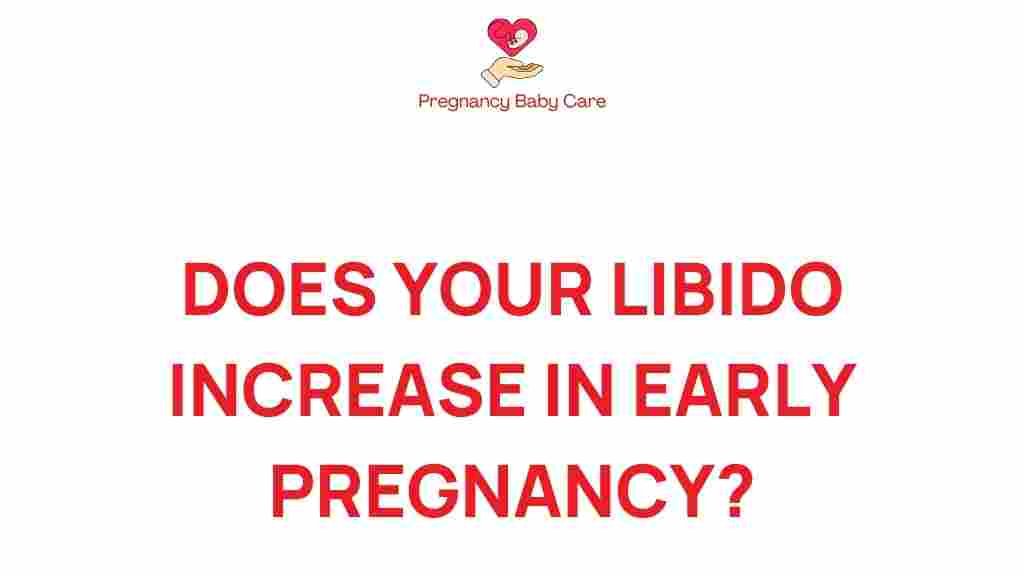Unpacking the Surge: Does Your Libido Increase in Early Pregnancy?
Pregnancy is a remarkable journey filled with various changes, both physical and emotional. Among these changes, many expectant mothers notice fluctuations in their libido during early pregnancy. This article will explore the relationship between libido and early pregnancy, the role of hormones, and how intimacy can evolve during this phase. We’ll provide insight into the pregnancy symptoms that may affect desire and offer tips for maintaining a healthy sexual health routine.
Understanding Libido in Early Pregnancy
Libido, or sexual desire, can vary greatly among individuals, and during early pregnancy, many women experience heightened libido due to hormonal changes. This surge in desire can be attributed to several factors:
- Hormonal fluctuations: The body undergoes significant hormonal changes in early pregnancy, particularly an increase in estrogen and progesterone levels. These hormones can enhance blood flow to the pelvic region, potentially increasing sexual desire.
- Emotional changes: The excitement and anticipation of becoming a parent can create a sense of intimacy and connection with partners, heightening libido.
- Physical changes: As the body changes, some women may feel more attractive and sensual, which can also contribute to an increase in desire.
The Role of Hormones in Libido
The interplay of hormones is crucial in understanding libido during early pregnancy. Here’s how specific hormones influence sexual health:
- Estrogen: Higher estrogen levels can increase blood flow to the pelvic area and enhance sensitivity, leading to a heightened sexual experience.
- Progesterone: While progesterone can sometimes lead to fatigue or mood swings, it also plays a role in preparing the body for pregnancy, which can indirectly affect libido.
- Oxytocin: Known as the “love hormone,” oxytocin is released during intimacy and can strengthen emotional bonds, making sexual experiences more fulfilling.
Common Pregnancy Symptoms Affecting Desire
Despite the potential increase in libido, many expectant mothers may also experience symptoms that can affect their desire:
- Nausea and vomiting: Morning sickness is a common symptom that can significantly impact a woman’s interest in intimacy.
- Fatigue: Increased tiredness during early pregnancy can lead to decreased libido.
- Breast tenderness: While some women may find breast sensitivity arousing, others may experience discomfort that impacts their desire.
Maintaining Intimacy During Early Pregnancy
For many couples, navigating intimacy during early pregnancy can be a challenge. Here are some tips to help maintain a healthy sexual relationship:
- Communicate openly: Discuss your feelings, desires, and any discomfort with your partner to foster understanding and connection.
- Explore new forms of intimacy: If penetrative sex feels uncomfortable, consider alternative ways to be intimate, such as cuddling, kissing, or sensual massages.
- Prioritize comfort: Finding comfortable positions can make intimacy more enjoyable during pregnancy.
Step-by-Step Guide to Understanding Changes in Libido
If you’re noticing changes in your libido during early pregnancy, here’s a step-by-step approach to understanding and managing these changes:
- Track your symptoms: Keep a journal of your emotional and physical symptoms to identify patterns in your libido.
- Discuss with your healthcare provider: If you have concerns about your libido or sexual health, consult your doctor for personalized advice.
- Involve your partner: Share your experiences with your partner, fostering a supportive environment to explore intimacy together.
- Experiment with intimacy: Be open to trying different forms of intimacy that feel comfortable and enjoyable for both partners.
Troubleshooting Tips for Low Libido
If you experience a decrease in libido, you’re not alone. Here are some troubleshooting tips for expectant mothers:
- Address fatigue: Ensure you’re getting enough rest and setting aside time for relaxation.
- Manage stress: Engage in stress-reducing activities such as yoga, meditation, or gentle exercise.
- Focus on self-care: Take time for yourself to indulge in activities that make you feel good, boosting your overall mood and libido.
- Consider counseling: If emotional or psychological factors are affecting your desire, seeking professional help can be beneficial.
When to Seek Professional Help
While fluctuations in libido during early pregnancy can be completely normal, there are times when seeking help is necessary:
- If you experience significant pain during intercourse.
- If you have concerns about your sexual health or any underlying conditions.
- If emotional issues persist that affect your relationship and intimacy.
Consulting with healthcare professionals can provide reassurance and guidance tailored to your unique situation.
The Importance of Sexual Health During Pregnancy
Maintaining sexual health during pregnancy is crucial for both the expectant mother and the partner. Healthy intimate relationships can enhance overall well-being and emotional connection. Here’s why sexual health matters:
- Strengthens relationships: Intimate connections can help partners feel closer as they prepare for parenthood.
- Promotes emotional health: A fulfilling sex life can help reduce stress and anxiety associated with pregnancy.
- Enhances physical well-being: Sexual activity can promote better sleep and improve mood through the release of endorphins.
Conclusion
In conclusion, the relationship between libido and early pregnancy is complex and influenced by hormonal changes, emotional shifts, and physical symptoms. Expectant mothers may experience an increase in desire, but it’s essential to remember that every pregnancy is unique. Open communication with partners, understanding personal changes, and prioritizing sexual health can help navigate this exciting yet challenging time. If you have concerns about your libido or sexual health during pregnancy, don’t hesitate to reach out to a healthcare professional for guidance.
For more resources on sexual health during pregnancy, explore this comprehensive guide that covers various topics.
Additionally, consider visiting this external resource for expert advice and support on intimacy during pregnancy.
This article is in the category Pregnancy and created by PregnancyBabyCare Team
